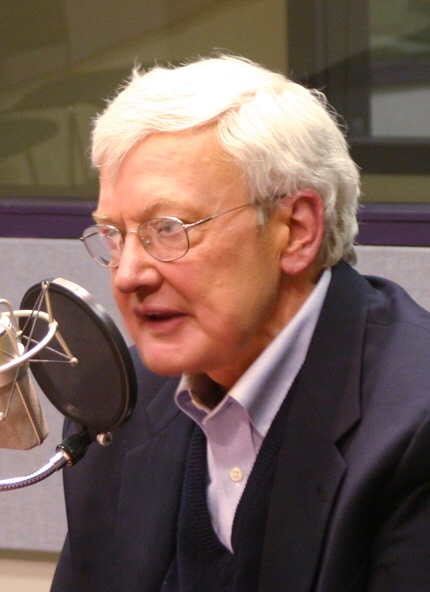
Roger Ebert
Born: June 18, 1942
Died: April 4, 2013
He was perhaps America’s most beloved film critic, but that is not what Roger Ebert thought he wanted to be.
The way Ebert tells it, he imagined a career as a columnist, something along the lines of being a Mike Royko, the Pulitzer Prize-winning Chicago Tribune columnist who covered the city’s political scene. Instead, Ebert’s boss at the Chicago Sun-Times, Bob Zonka, announced in 1967 that Ebert would replace the paper’s retiring film critic, Eleanor Keen. Ebert’s life course was set. From that day until his death in 2013 from cancer, Ebert filed review after review and wrote book after book, relentlessly chronicling American filmmaking over six decades.
Ebert’s were the go-to reviews for films, and his annual published collections—and his not-to-be-missed compilations of his most scathing evaluations of dreadful movies—were beloved. His writing is first person and often autobiographical, yet in unassuming and rather modest ways. As his thyroid cancer treatment and surgeries robbed him of his ability to speak, he turned to the keyboard and journaled online to a growing audience of newcomers to his famous wit and his fearless and keen-eyed commentary on not only popular culture but also on life itself. He faced the challenges of his illness and impending death with great humor and transmuted what surely must have sometimes been fear into frank, transparent explorations of the soul. He wasn’t sappy about this, but his love of being human was palpable and his desire to share the human experience with anyone who cared to read what he wrote was generous. He became a teacher, of sorts, as he let us watch him wrestle with the big issues.
More about Roger Ebert:
Remembering Roger Ebert, America’s most beloved critic
Ebert became a teacher, of sorts, as he let us watch him wrestle with the big issues.
Image: Sound Opinions - Flickr: Roger Ebert, CC BY-SA 2.0, via Wikimedia Commons







